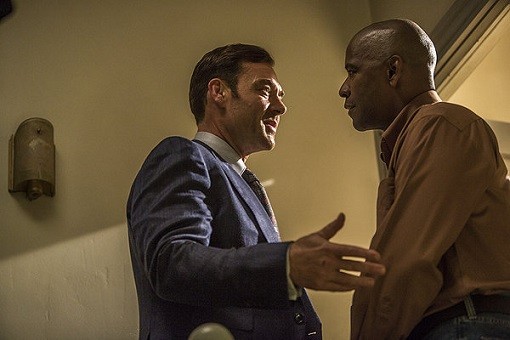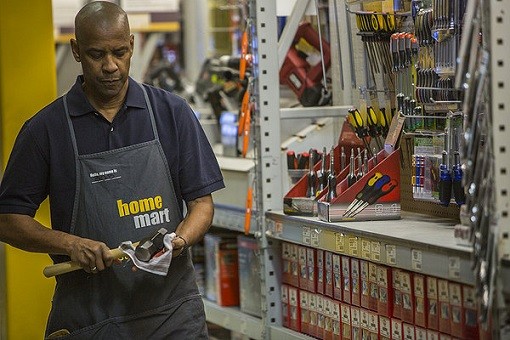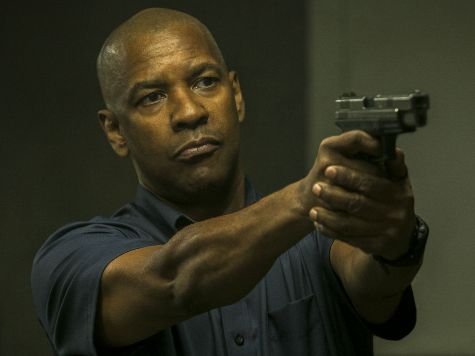
Not only were my expectations sky-high for director Antoine Fuqua’s bigscreen remake of the 1985-1989 television series “The Equalizer,” but right before the movie started a rock was hurled through the window of my life. Less than a half-hour before the screening, I was in no mood for any kind of movie. I wanted to solve this problem and assumed I’d be distracted and worrying about it through the whole two hours.
That lasted about 2 minutes.
And for the next two hours I was mesmerized and delivered from all the nonsense of real life.
If there’s a higher recommendation for a movie than that, I’d love to hear it.

The Mighty Denzel Washington plays Robert McCall, a man with a past who obviously chose to get himself lost in a big city. His life is quiet, solitary, meticulous, and routine. By day, Robert works at a home improvement superstore where he’s just another guy in one of those aprons who knows what’s in aisle 4.
At night the insomnia comes, which takes Robert to a 24 hour diner where he sips his tea, reads classic novels, and make fatherly chit-chat with Teri (Chloë Grace Moretz), a heartbreakingly young prostitute.
Teri’s relationship with her brutally violent Russian pimp is what activates quiet Robert into The Equalizer, a remarkably resourceful vigilante whose preferred killing methods are more reminiscent of Jason and Michael Myers than Charles Bronson. If Robert ever once did anything more than point a gun, I missed it. Instead, it’s corkscrews, garden shears, mind games, and ruthless cunning.

“The Equalizer” works in every single important arena:
1. The Quiet Moments: These are even more compelling than the action, and occur throughout. The story takes its delicious time building to the first explosive action scene. The ritual of Robert’s life and his interaction with others, especially Teri, are just perfect. Once the violence redlines, Fuqua time and again taps the brakes to allow Denzel to do what he does best: Calmly explain to bad people how it’s going to be from now on.
What’s most impressive is that although we walk into the theatre already aware of Robert’s background, screenwriter Richard Wenk still manages to play out these cards in a slow but compelling way. Wenk’s dialogue is first-rate.
2. Action Scenes: Fuqua’s in no hurry to blow through or paper over the good stuff. This is a genre movie, and Fuqua understands what satisfies genre fans. We want to despise the villains and marinate in their comeuppance. The violence is explicit but only as a means to that very satisfying end.
3. Pure, Raw Starpower: Fuqua, who directed Denzel to a Best Actor Oscar in 2001’s “Training Day” (itself a genre classic), steps into the late Tony Scott’s directorial shoes as a filmmaker able to appreciate and capture the presence of his star.
Washington’s power comes from stillness. While everyone around him is set to explode, Robert is the calm in the eye of the storm; therefore the cocking of his head or the lifting of an eyebrow is as explosive as a car crash.
Fuqua finds any excuse he can to film his star in silhouette and in the rain. The last time an iconic avenger was photographed as effectively was director Michael Winner’s work with Charles Bronson in “Death Wish II” (1982).
—

“The Equalizer” might also be the first studio film in which a photograph of President George W. Bush isn’t used as a heavy handed, leftwing “tell.”
What can I say, I notice these things.
According to the trades, the studio was so happy with “The Equalizer” it was fast-tracked for a sequel based only on an industry screening. I can see why.
Follow John Nolte on Twitter @NolteNC

COMMENTS
Please let us know if you're having issues with commenting.